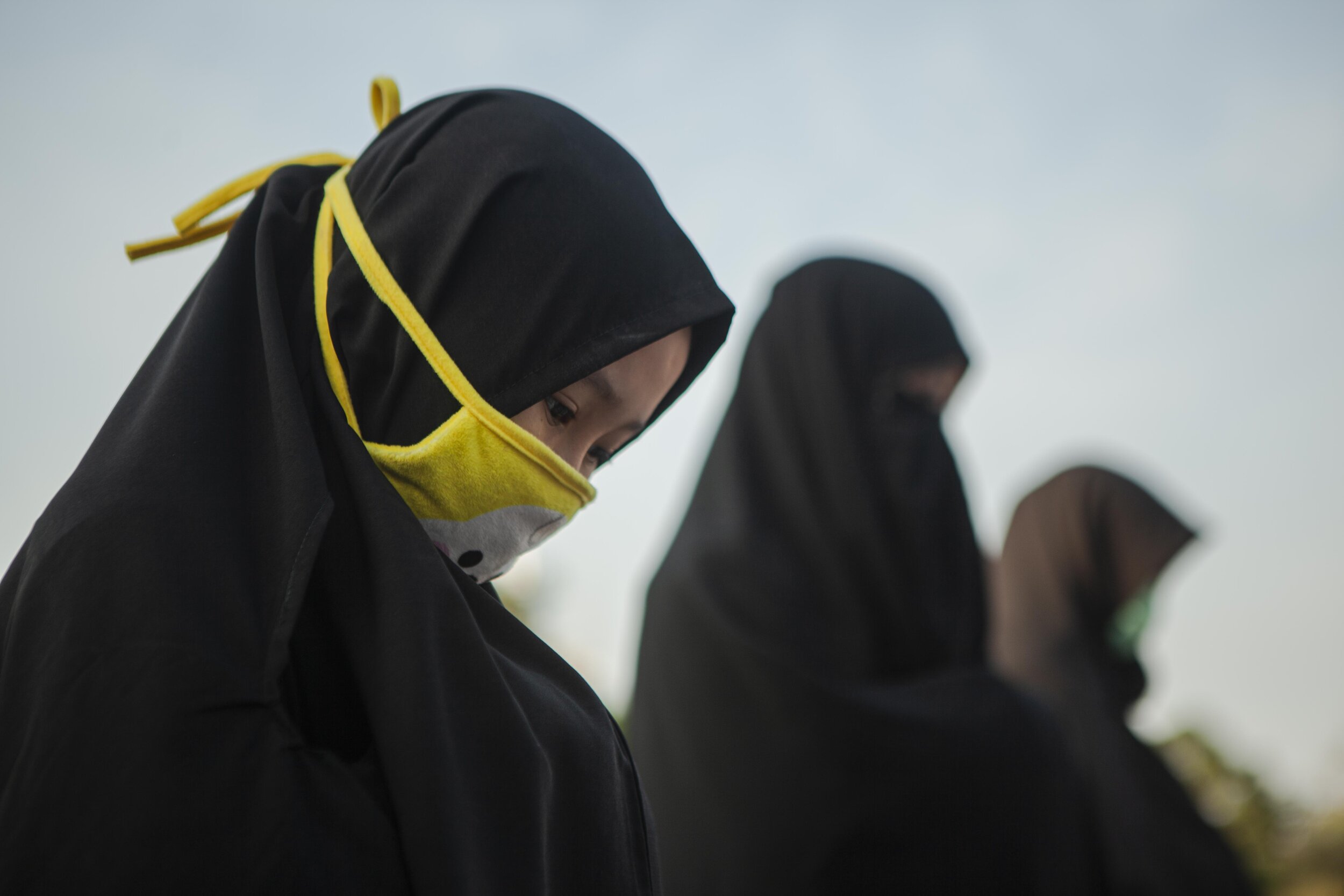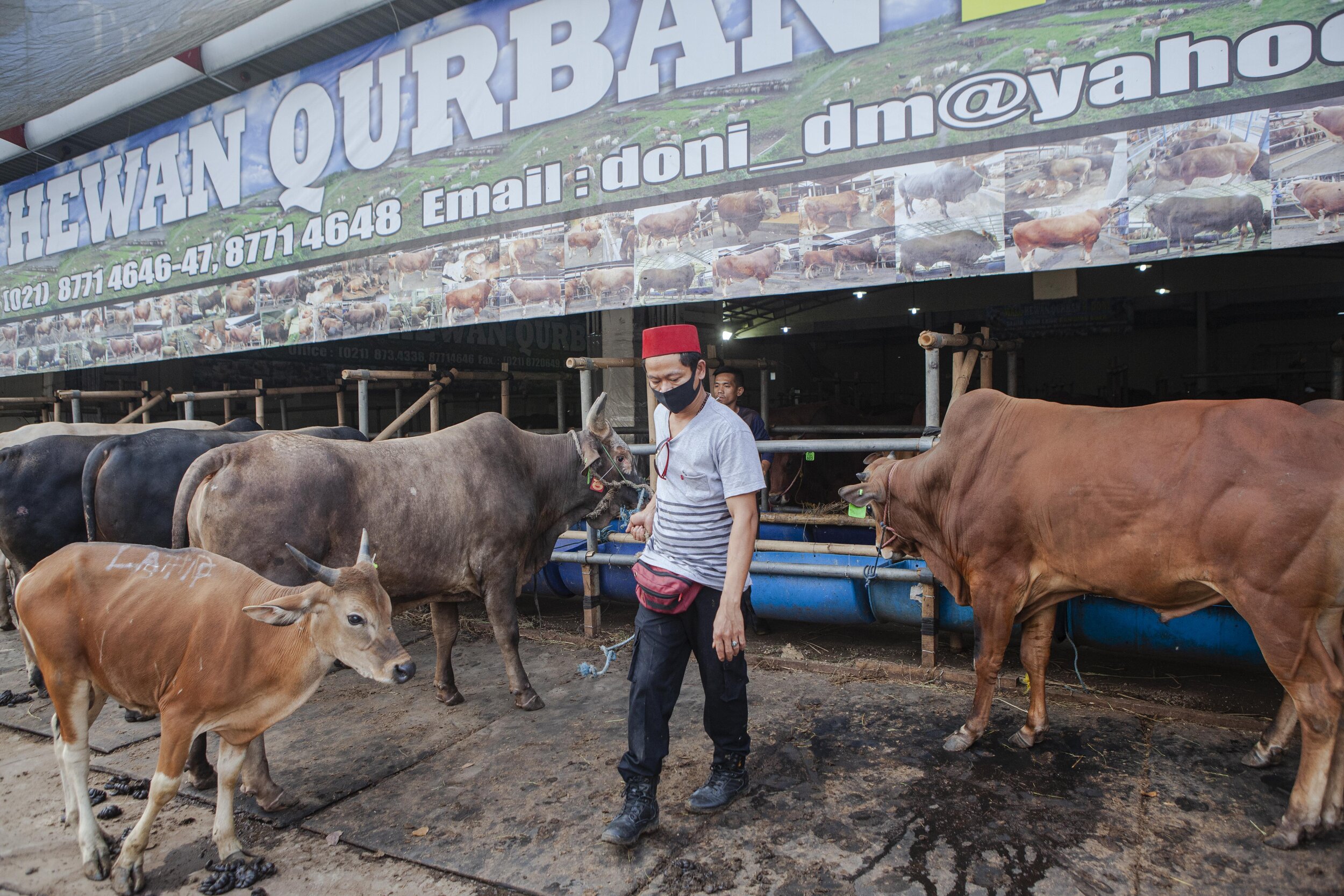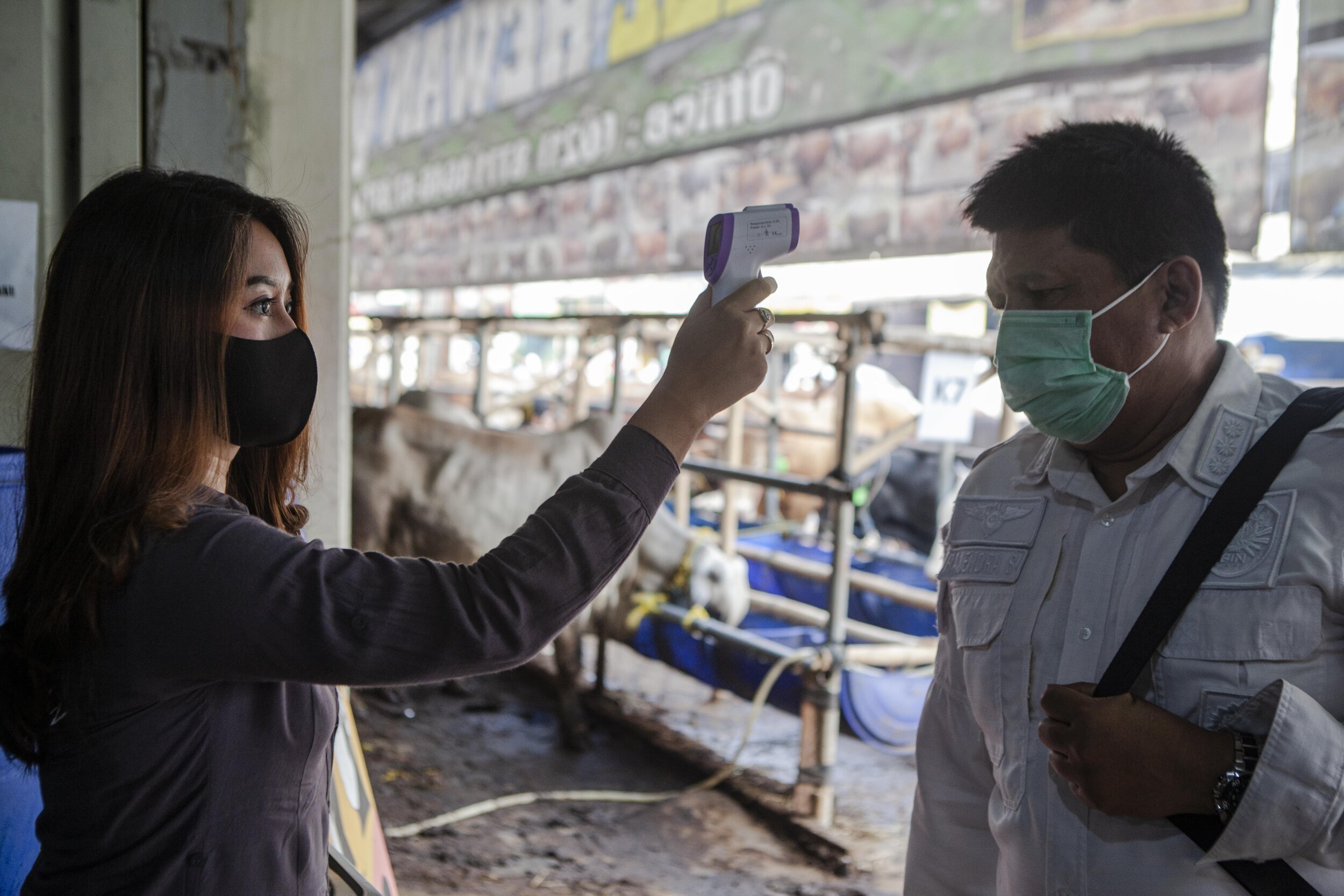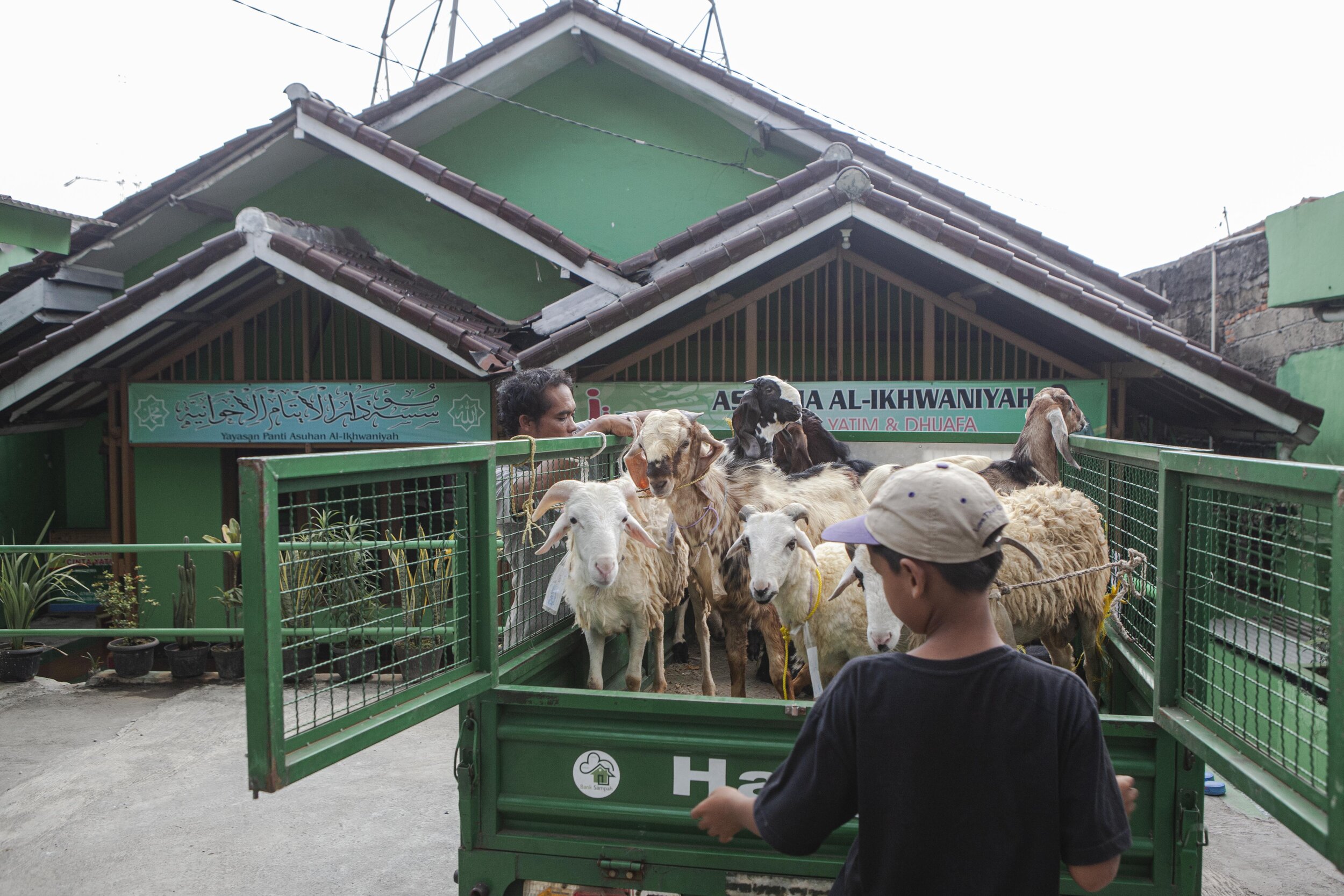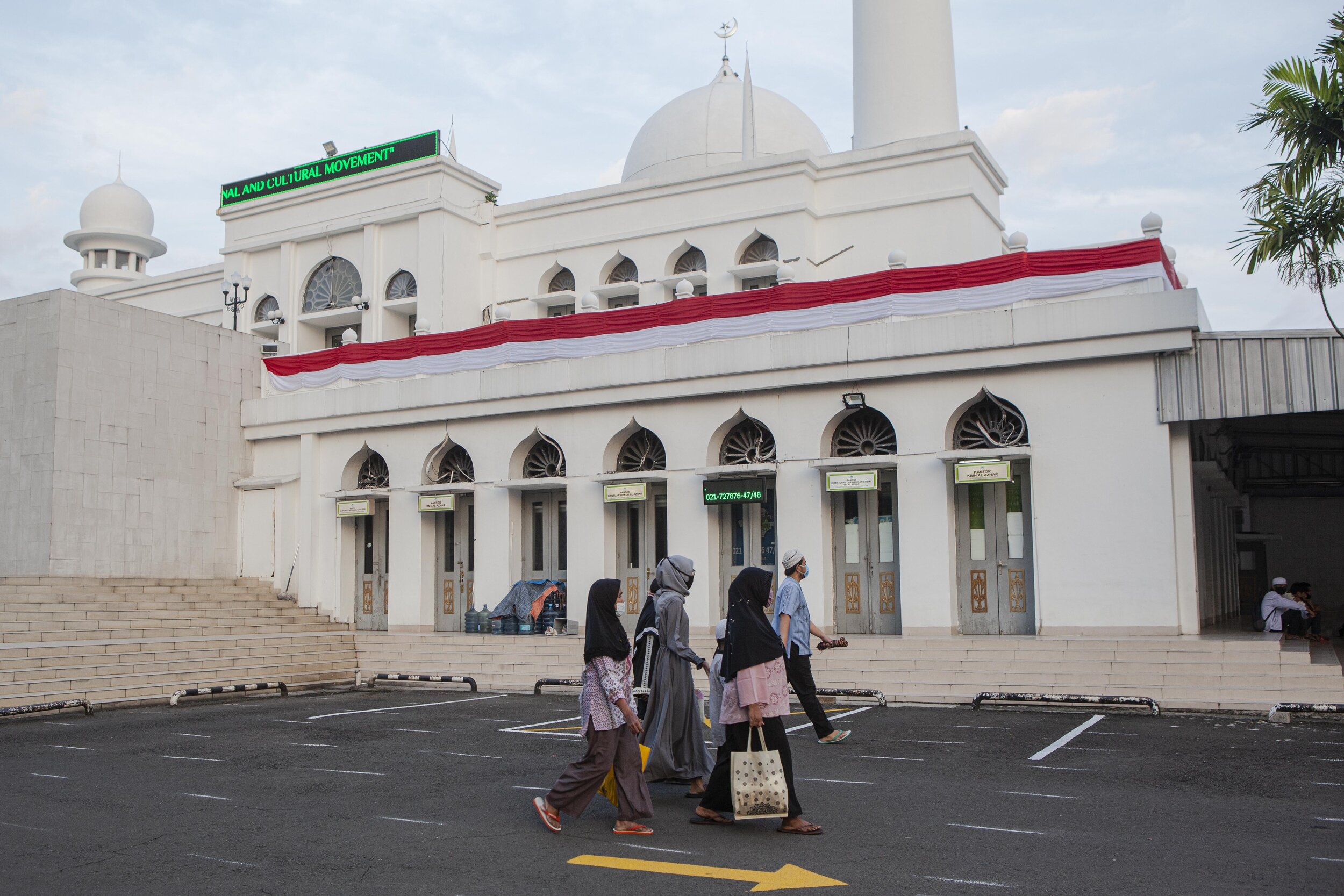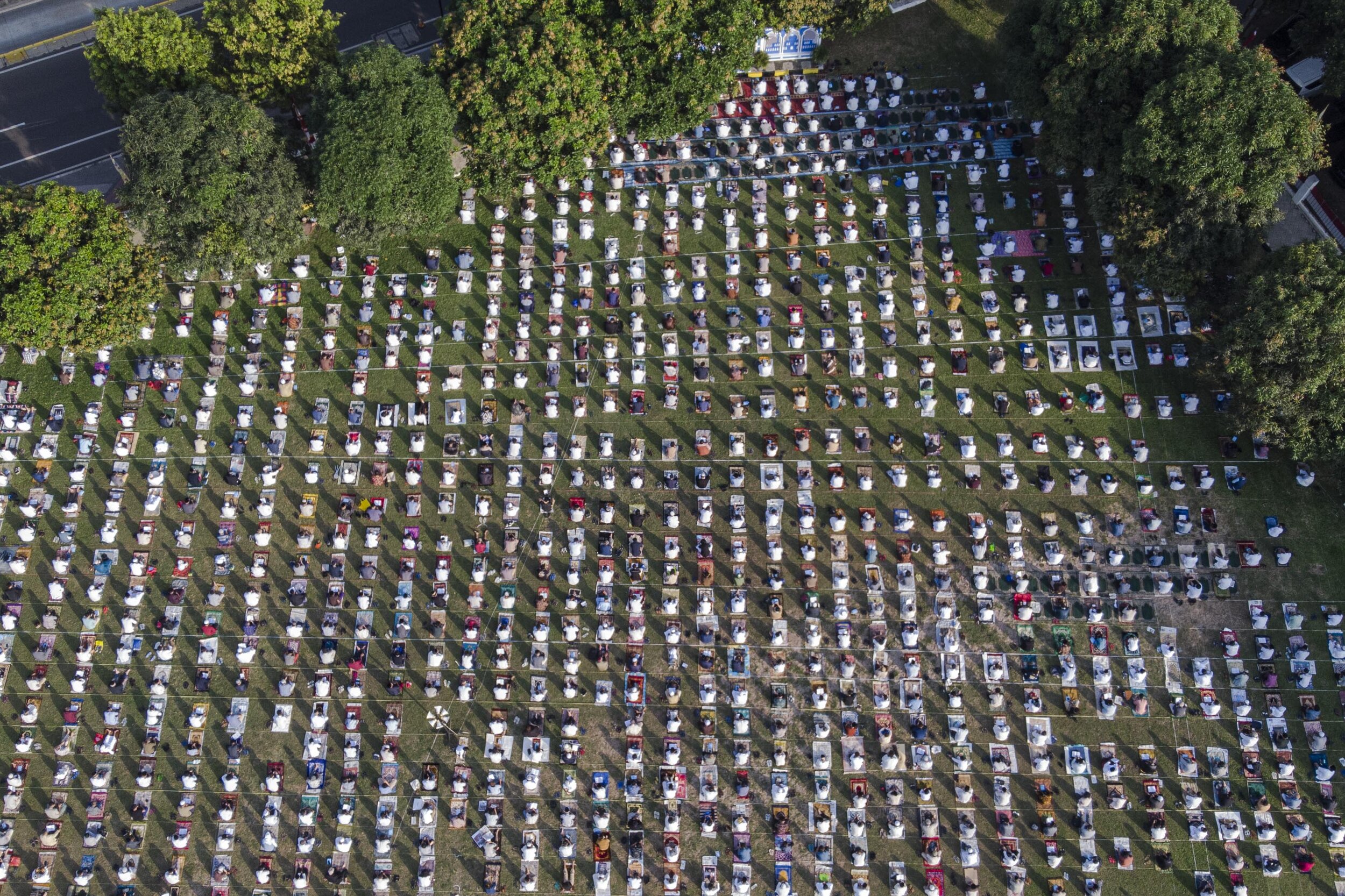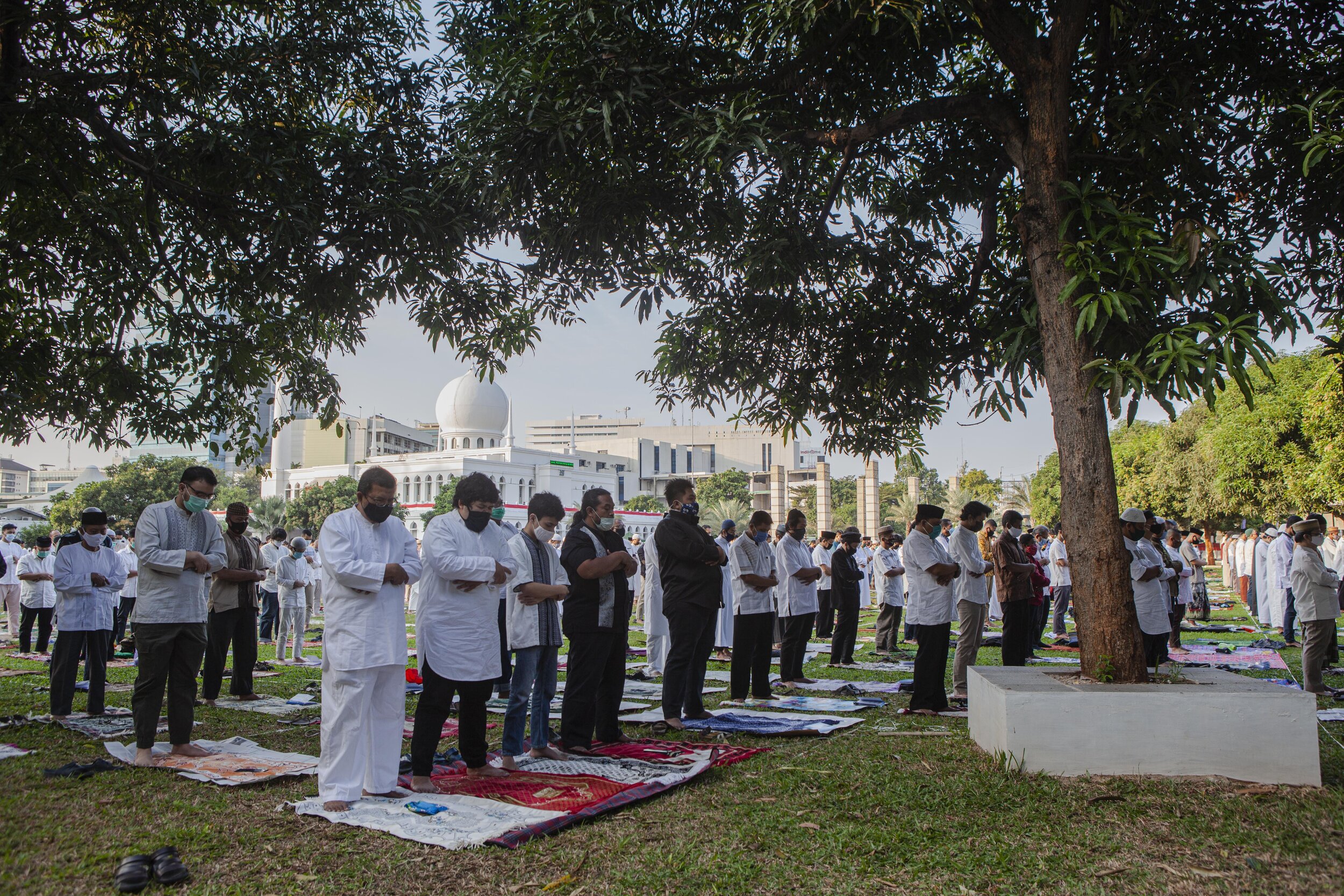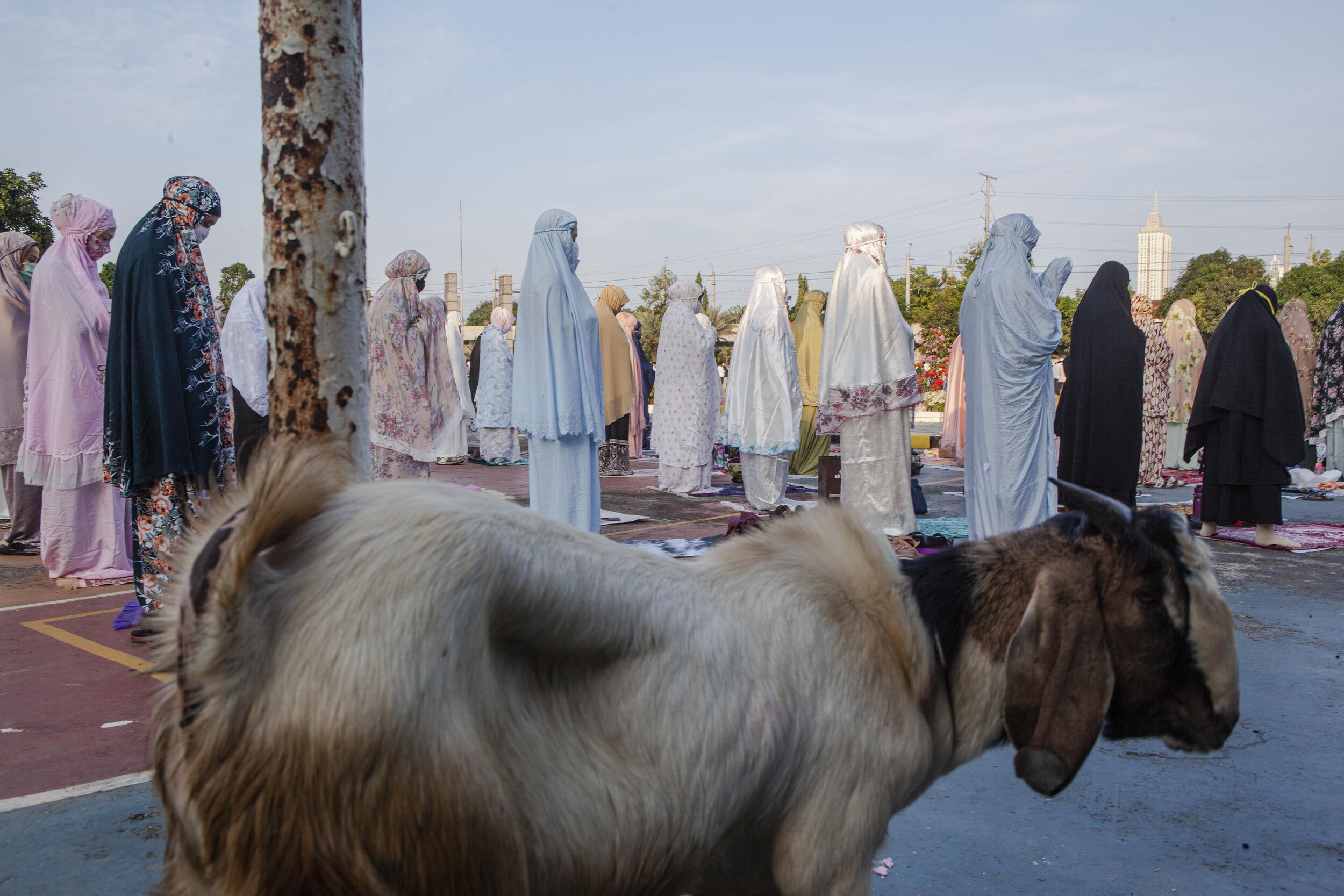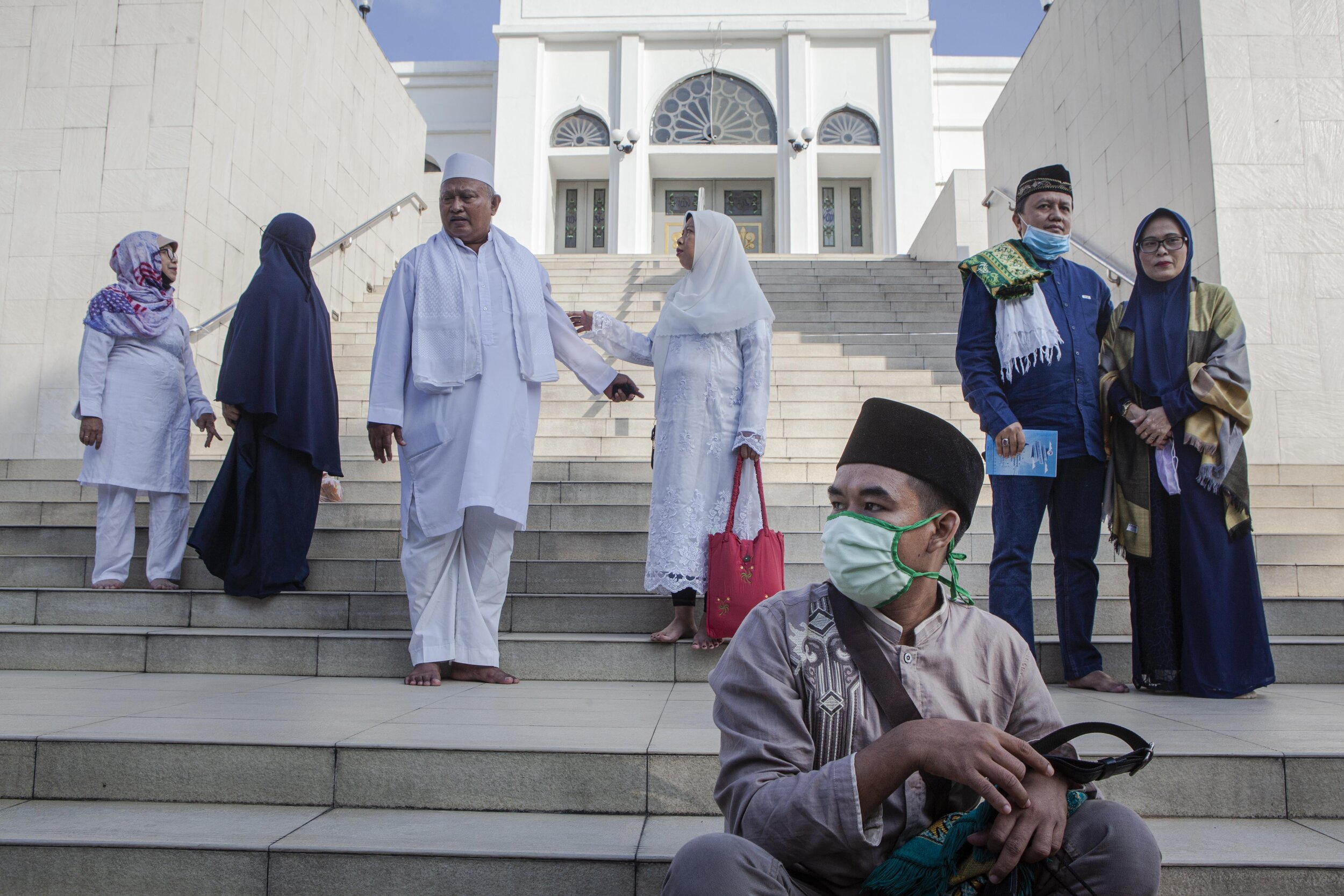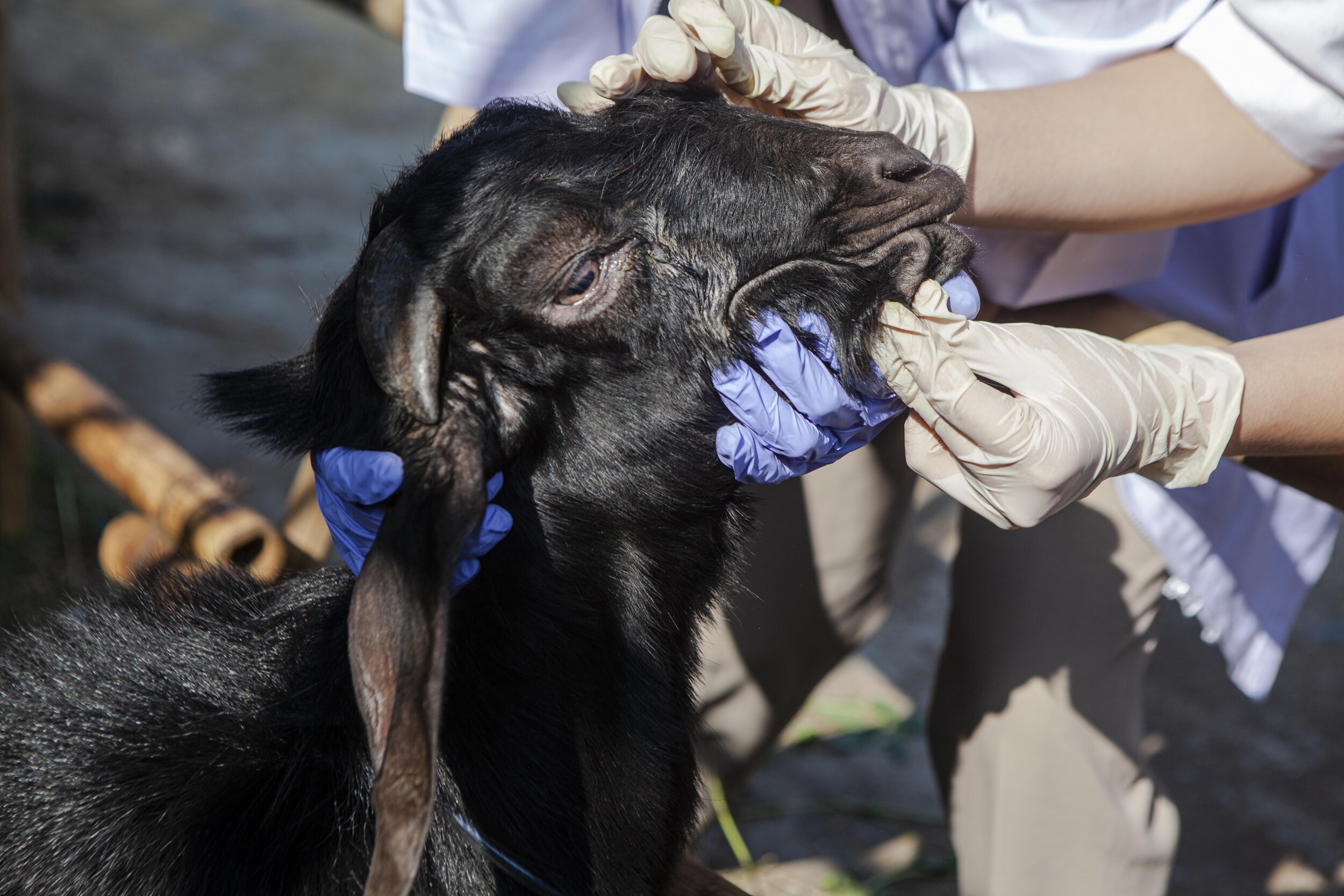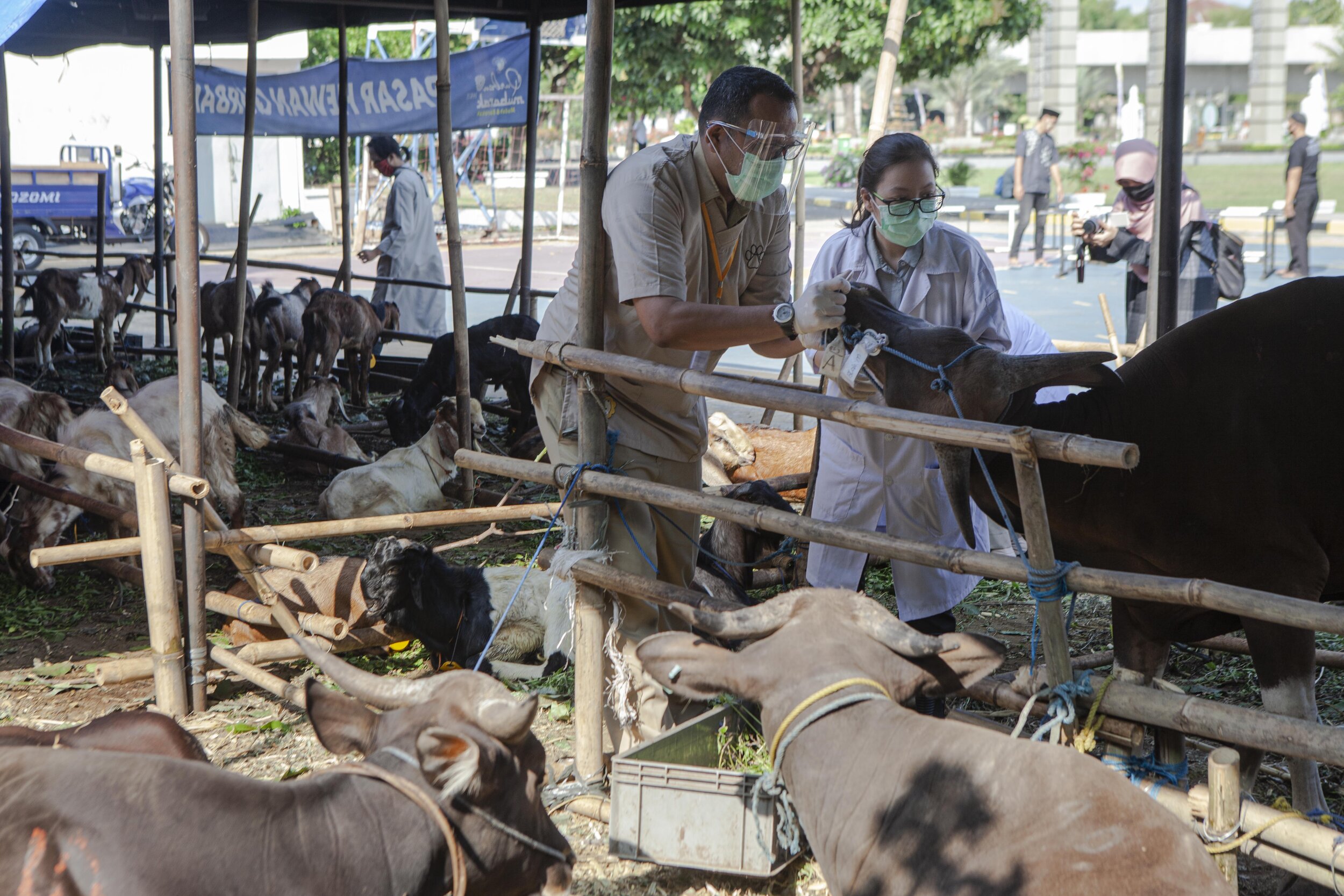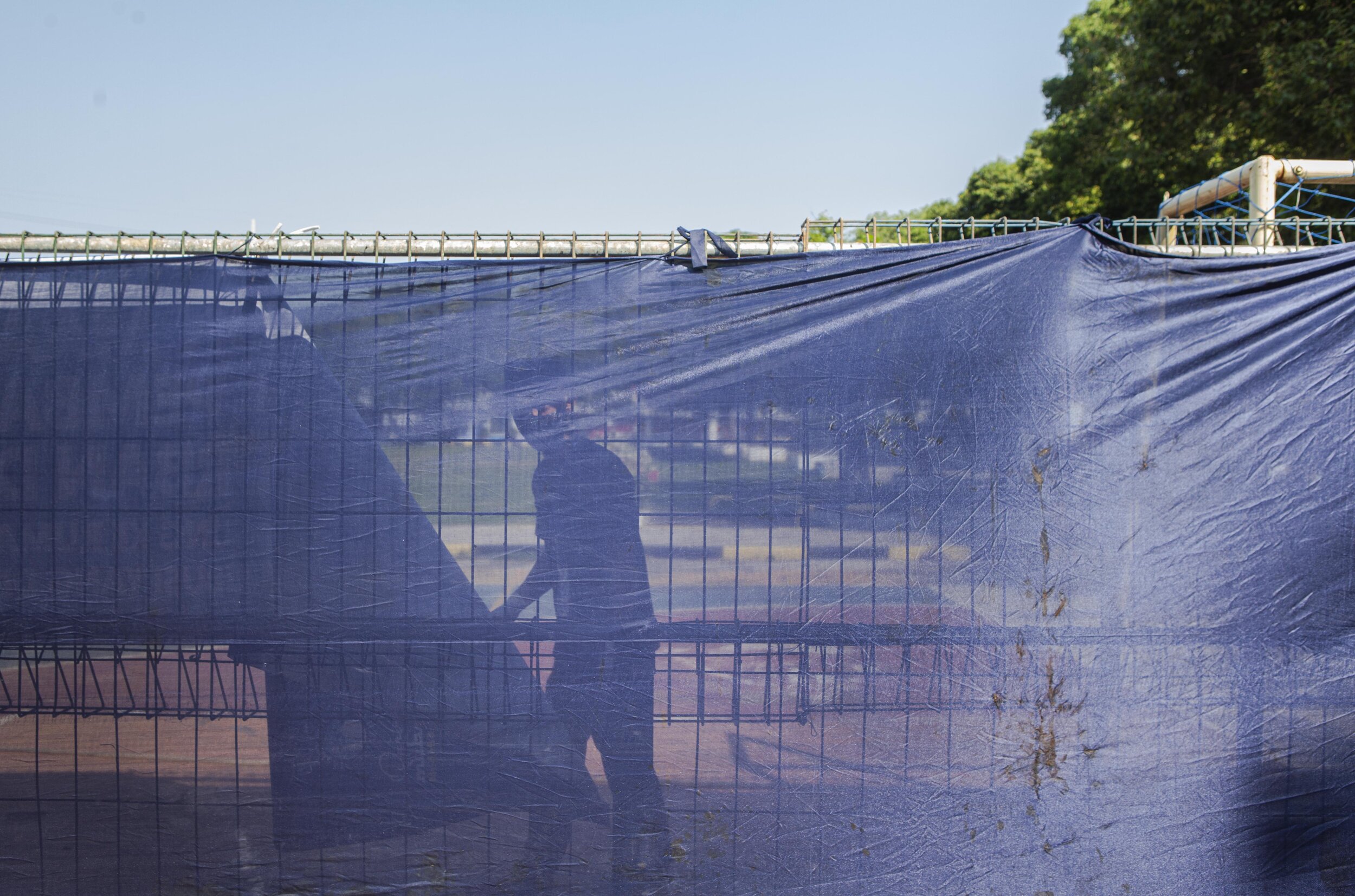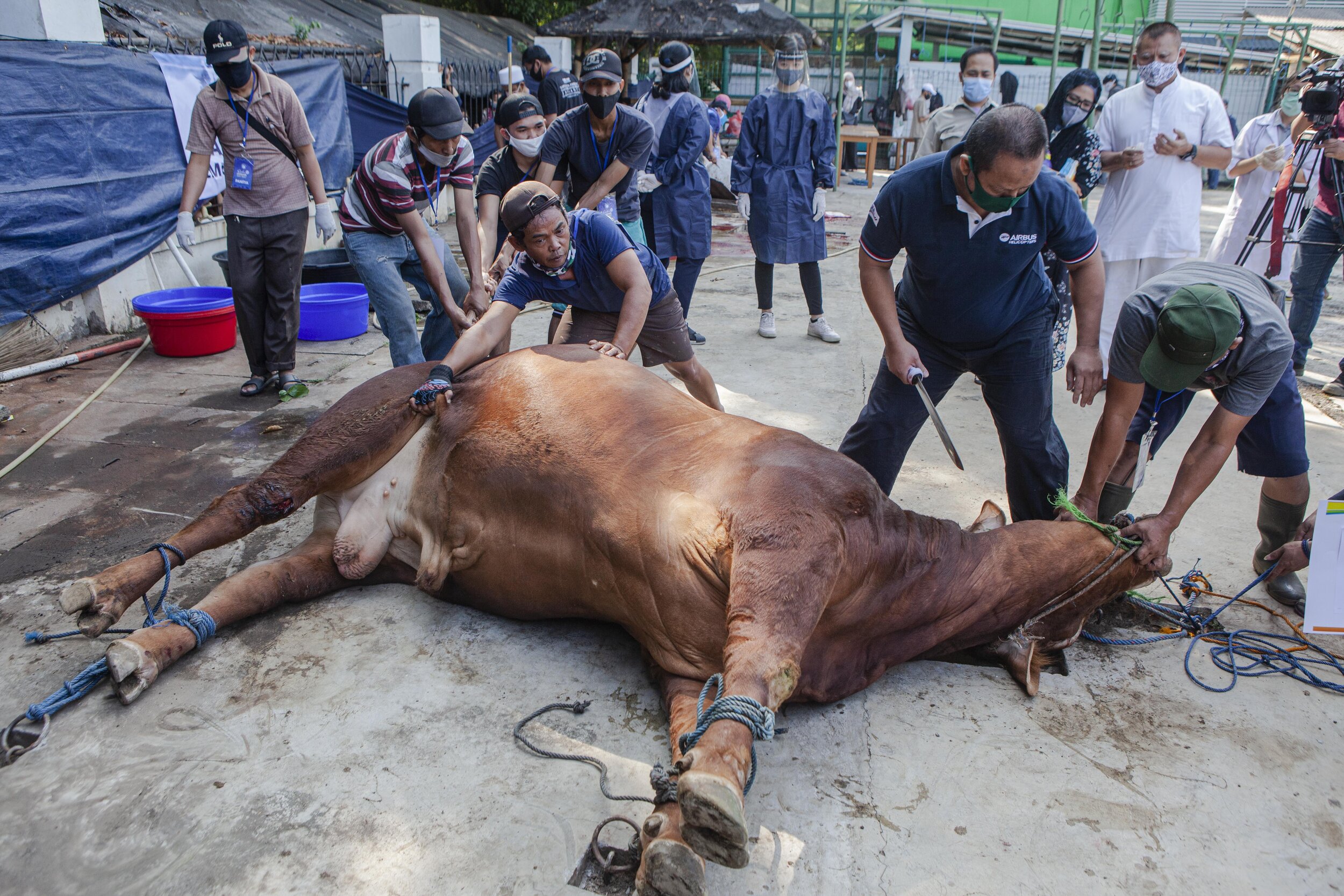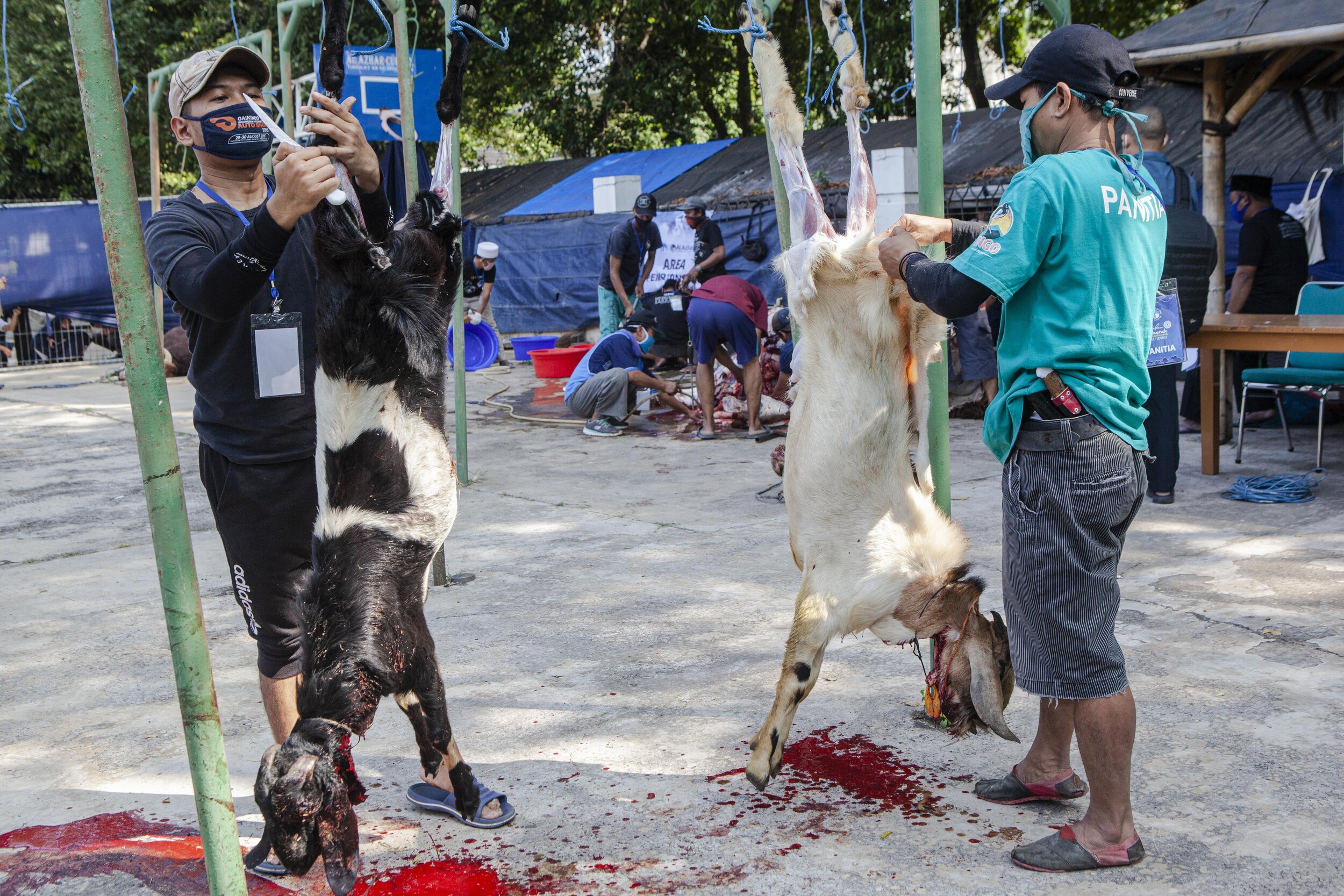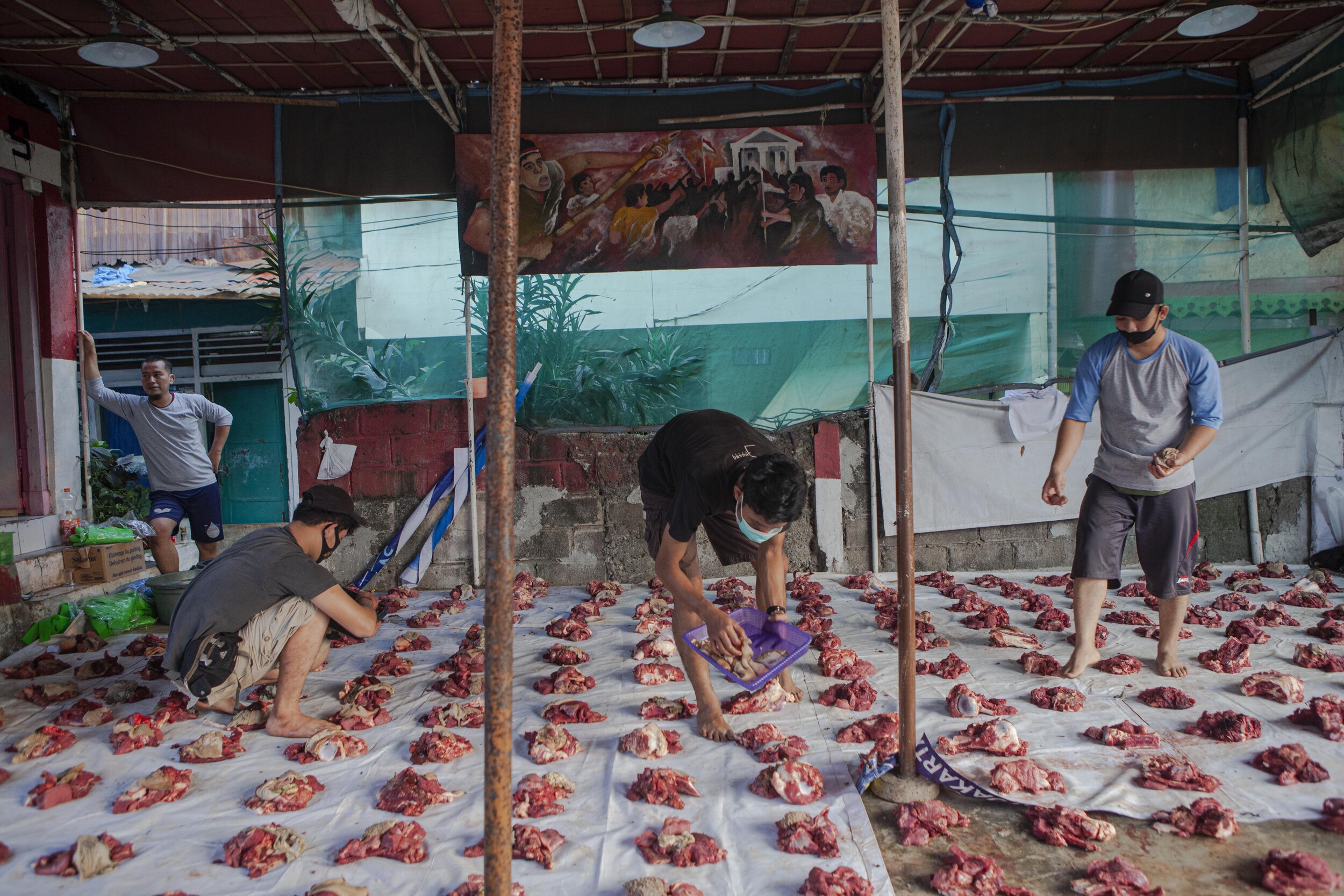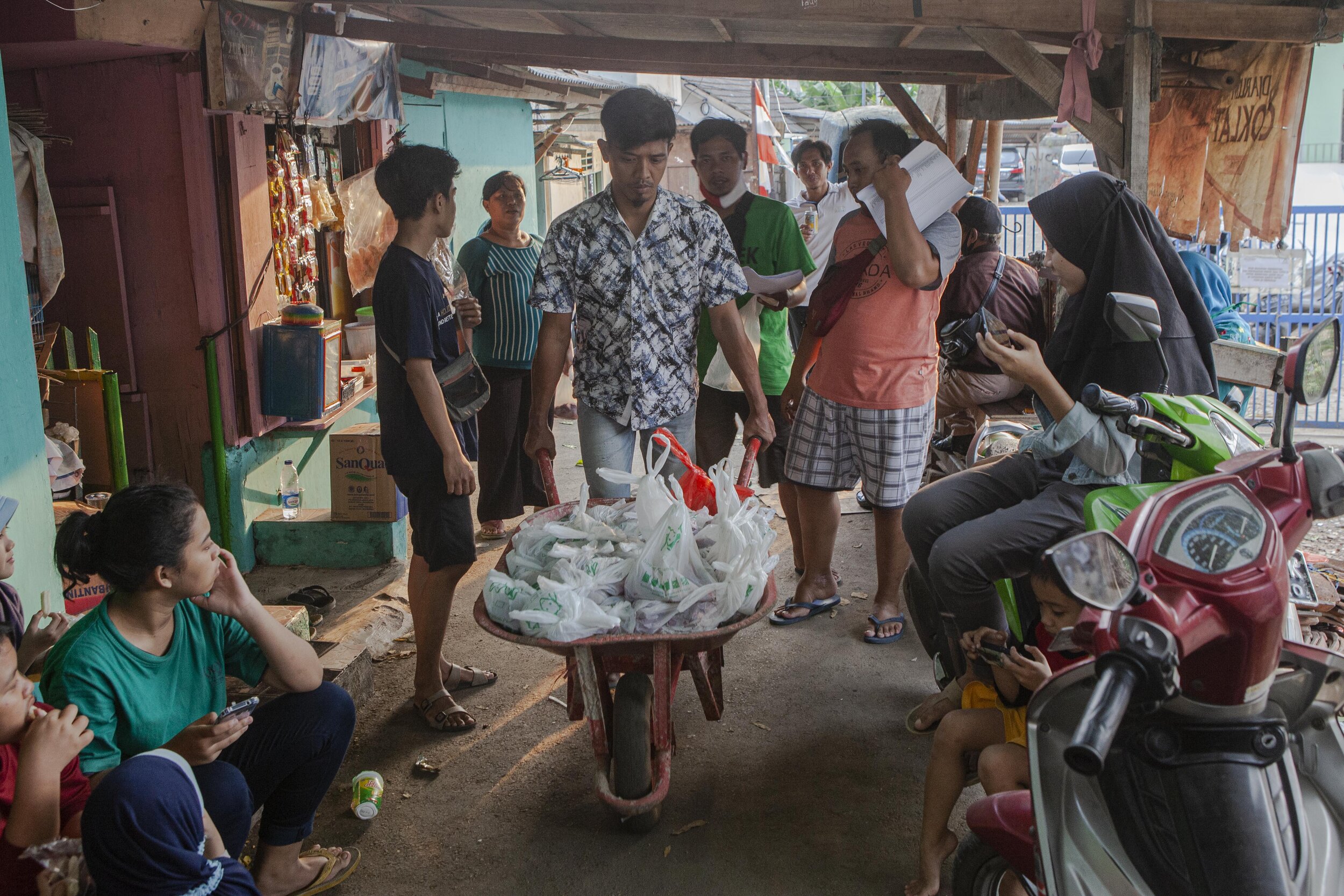In photos: Indonesian Muslims Celebrate Eid al-Adha During COVID-19, Donating Meat To Needy
JAKARTA, Indonesia— Muslims in Indonesia celebrated Eid al-Adha July 30-31 amid the COVID-19 pandemic with no end in sight.
Called the festival of sacrifice, Eid al-Adha observes when Prophet Ibrahim (Abraham) was asked by God to sacrifice his first-born son Ismail. Ibrahim submitted to God’s will and was prepared to sacrifice his son but was then stopped, and told to sacrifice an animal instead. Muslims around the world celebrate by purchasing animals to slaughter, or the meat, and distributing portions of the meat to the poor.
Usually during Eid, sales of livestock for animal sacrifices surge in the Muslim-majority country, but this year the sales are about half of last year’s, according to local cattle sellers.
"For Muslims, sacrificial worship is not mandatory every year,” said Rizky, a cattle seller in Jakarta. “Maybe for now people don't buy because their economic conditions are unstable.”
Still, online sales of livestock grew by about 50 percent compared to 2019 as more people try to avoid shopping in person.
The pandemic has brought much of Indonesia’s economy deemed non-essential to a grinding halt, threatening the country’s progress in lowering poverty rates. National poverty is expected to increase by 13 percent, or 36 million people this year, according to the International Food Policy Research Institute.
Nearly six months into the outbreak, the number of confirmed cases has reached 108,376 as of July 31. Nearly 2,040 cases were added in just the past 24 hours, the government announced the morning of July 31. So far, 5,131 people have died of the coronavirus in the Southeast Asian country.
The Indonesian Ulema Council (MUI) in Jakarta issued a policy on the Eid al-Adha prayer and slaughter of sacrificial animals during the COVID-19 outbreak, breaking the city into zones of differing rules depending on the spread of the virus in that area.
In the red and even black zones, which are very dangerous and life-threatening, prayer had to be performed at home, and Muslims are forbidden to pray together in the places of worship. In areas with orange and yellow zones, a low danger level where the coronavirus seems more controlled, Muslims could pray in their congregation in the mosque following COVID-19 protocols. In green zones, people are allowed to carry out religious activities normally.
One of the places of worship used for the Eid al-Adha prayer was Al Azhar Mosque. As part of the implementation of the health protocol, government officers measured each person's body temperature using a thermo gun at each entrance.
Head of the Al Azhar Great Mosque Office, Hajj Iding said that the number of worshipers was limited to 50 percent capacity, according to protocol. Al Azhar Mosque can accommodate 4,000 worshipers normally.
The main hall of the mosque remained closed and prayer activities were moved out into the fields and parking lots surrounding the mosque complex. In the field, ropes sectioned off squares the size of a prayer mat for male congregational prayers.
Vice President KH Ma'ruf Amin said in a public statement that all Muslims should interpret the celebration of Eid al-Adha as a moment to share kindness with others and that the ritual of animal sacrifice should be shared with those in need of food.
"Right now is the right condition to do [animal sacrifice],” he said. “Because many fellow countrymen are in need of our helping hands, presumably our deeds of worship and sacrifice can support a harmonious life between people and nation and state.”
In a slum village in downtown Jakarta, several Muslim leaders in small mosques slaughtered cows and goats. The meat was distributed to neighbors around them, but not all residents received the meat-- only those who were deemed needy.
"I am happy to have half a kilogram of beef, it can be used for my family's side dish," one recipient, Aisyah, said.
Agoes Rudianto is a photojournalist based in Jakarta, Indonesia. His work has been published in Reuters, Anadolu Agency, South China Morning Post, The Diplomat and National Geographic Indonesia.

